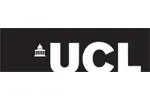We're moving! This site will be relocating to goingto.university in 2026. Please update your bookmarks to the new address.


the United Kingdom
University College London (UCL)| The award | How you will study | Study duration | Course start | Domestic course fees | International course fees |
|---|---|---|---|---|---|
| MSc | Full-time, Part-time | 1 - 2 year | October | - | - |
This masters degree will:
This masters degree provides the opportunity to:
People from a computing or education background as well as those already working in the learning technologies area. There are two routes: one for those without significant prior experience of computing, and another for those with significant prior experience of computing, including prior experience with using an object-oriented programming language.
Entry requirementsA first degree (minimum 2:2) or postgraduate degree in computing or education, or in another subject provided it includes significant computing or education content, or equivalent professional experience.
How are you assessed?By a combination of coursework assignments and written examinations (depending on the modules you choose), plus either an 8,000-word to 12,000-word report on an implementation project and related technical appendices, or an 18,000-word to 22,000-word dissertation.
AttendanceFace-to-face evening sessions.
How to applyThis is a Birkbeck, University of London programme taught jointly with the Institute of Education.
For an application form, and more information including fees, please visit the MSc Learning Technologies entry on the Birkbeck website.
If you have questions about the application process, please email the programme team at Birkbeck [email protected], or telephone +44 (0)20 7631 6722.
Core topicsBelow are some suggested courses at other providers that you may also be interested in:
Bachelor in Transportation Design Bachelor Degree
IAAD. - Institute of Applied Art and Design
Find out moreMaster of Laws LLM Law and Business: Finance and Accounting LLM
University of Exeter Law School
Find out moreManagement of Innovation and Sustainable Business Development MSc
NTNU School of International Business
Find out moreIf you do not meet the entry requirements for this course then consider one of these postgraduate preparation courses from another institution:
Graduate Diploma of Engineering (Industrial Automation)
Engineering Institute of Technology
Find out moreThere are 633 other courses listed from University College London (UCL). A selection of these are displayed below:
Join the StudyLink email list and never miss a chance to turn your study abroad dreams into reality!

See other universities in London
Find out more about studying in the United Kingdom